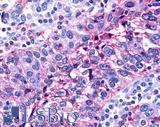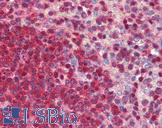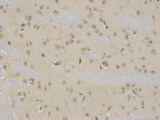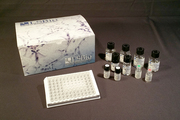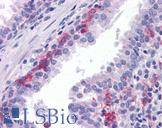Login
Registration enables users to use special features of this website, such as past
order histories, retained contact details for faster checkout, review submissions, and special promotions.
order histories, retained contact details for faster checkout, review submissions, and special promotions.
Forgot password?
Registration enables users to use special features of this website, such as past
order histories, retained contact details for faster checkout, review submissions, and special promotions.
order histories, retained contact details for faster checkout, review submissions, and special promotions.
Quick Order
Products
Antibodies
ELISA and Assay Kits
Research Areas
Infectious Disease
Resources
Purchasing
Reference Material
Contact Us
Locations
Orders Processing,
Shipping & Receiving,
Warehouse
2 Shaker Rd Suites
B001/B101
Shirley, MA 01464
Production Lab
Floor 6, Suite 620
20700 44th Avenue W
Lynnwood, WA 98036
Telephone Numbers
Tel: +1 (206) 374-1102
Fax: +1 (206) 577-4565
Contact Us
Additional Contact Details
Login
Registration enables users to use special features of this website, such as past
order histories, retained contact details for faster checkout, review submissions, and special promotions.
order histories, retained contact details for faster checkout, review submissions, and special promotions.
Forgot password?
Registration enables users to use special features of this website, such as past
order histories, retained contact details for faster checkout, review submissions, and special promotions.
order histories, retained contact details for faster checkout, review submissions, and special promotions.
Quick Order
| Catalog Number | Size | Price |
|---|---|---|
| LS-A5411-50 | 50 µg (1 mg/ml) | $440 |
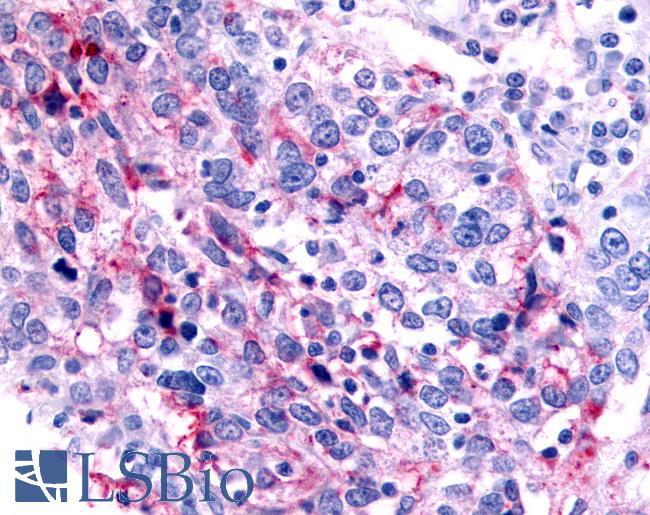
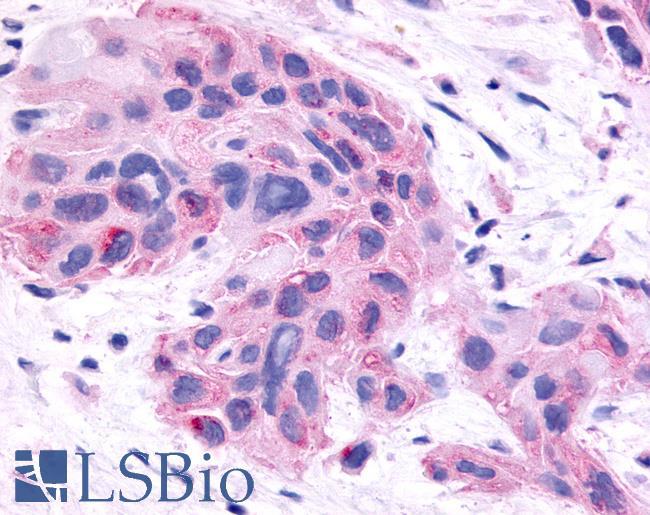
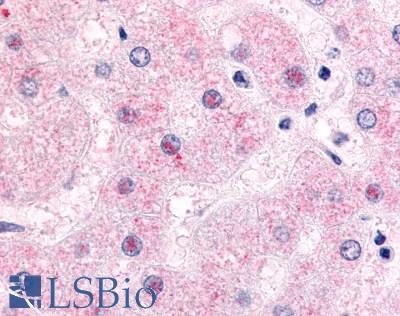
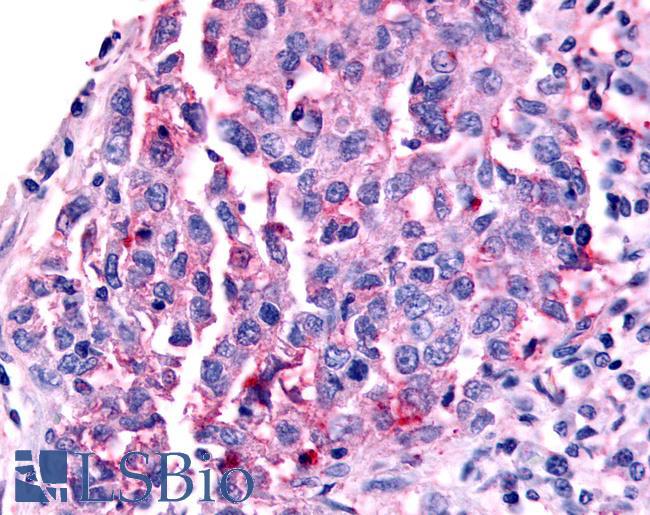




1 of 4
2 of 4
3 of 4
4 of 4
PathPlus™ Polyclonal Rabbit anti‑Human NR0B2 Antibody (Ligand‑binding Domain, IHC, IF) LS‑A5411
PathPlus™ Polyclonal Rabbit anti‑Human NR0B2 Antibody (Ligand‑binding Domain, IHC, IF) LS‑A5411
Antibody:
NR0B2 Rabbit anti-Human Polyclonal (Ligand-binding Domain) Antibody
Application:
IHC, IHC-P, ICC, IF
Reactivity:
Human, Monkey, Mouse, Hamster, Rabbit
Format:
Unconjugated, Unmodified
Overview
Antibody:
NR0B2 Rabbit anti-Human Polyclonal (Ligand-binding Domain) Antibody
Application:
IHC, IHC-P, ICC, IF
Reactivity:
Human, Monkey, Mouse, Hamster, Rabbit
Format:
Unconjugated, Unmodified
Specifications
Description
SHP (short heterodimer partner) is a bile acid-dependent orphan NR0 Knirps-Like receptor with dimerization and ligand-binding domains but not the conventional DNA-binding domain. SHP has been shown to inhibit the transcriptional activity of other nuclear receptors, including thyroid hormone receptor, constitutive androstane receptor, and retinoic acid receptors. SHP affects hepatic cholesterol catabolism based on a two-step mechanism dependent on both coactivator competition and direct transcriptional repression by mediating the repression of CYP7A1, the rate-limiting enzyme for bile acid synthesis. Mutations in the SHP gene contribute to increased body weight, indicating a possible role of SHP in the development of early-onset diabetes (maturity-onset diabetes of the young, MODY). Loss of SHP in mice caused abnormal accumulation and increased synthesis of bile acids due to derepression of rate-limiting CYP7A1 and CYP8B1 hydroxylase enzymes in the biosynthetic pathway.
References: The UniProt Consortium. Nucleic Acids Res. 47: D506-515 (2019); Nucleic Acids Res. 2016 Jan 4;44(D1):D733-45, PMID:26553804
Target
Human NR0B2
Synonyms
NR0B2 | Short heterodimer partner | SHP | Nuclear receptor SHP | Orphan nuclear receptor SHP | Small heterodimer partner | SHP1
Host
Rabbit
Reactivity
Human, Monkey, Mouse, Hamster, Rabbit
(tested or 100% immunogen sequence identity)
Predicted
Rat, Bat, Bovine (at least 90% immunogen sequence identity)
Clonality
Polyclonal
Conjugations
Unconjugated
Purification
Immunoaffinity purified
Modifications
Unmodified
Immunogen
Synthetic 16 amino acid peptide from ligand-binding domain of human NR0B2. Percent identity with other species by BLAST analysis: Human, Gorilla, Gibbon, Monkey, Marmoset, Mouse, Hamster, Rabbit (100%); Rat, Bovine, Bat (94%); Elephant, Panda, Horse, Pig, Opossum (88%); Dog (81%).
Epitope
Ligand-binding Domain
Specificity
Human NR0B2. BLAST analysis of the peptide immunogen showed no homology with other human proteins.
Applications
- IHC
- IHC - Paraffin (4 µg/ml)
- ICC
- Immunofluorescence
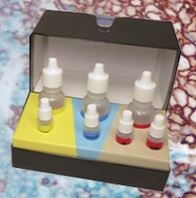
|
Performing IHC? See our complete line of Immunohistochemistry Reagents including antigen retrieval solutions, blocking agents
ABC Detection Kits and polymers, biotinylated secondary antibodies, substrates and more.
|
Presentation
PBS, 0.1% Sodium Azide
Storage
Aliquot and store undiluted at -20°C or below for up to 1 year. Can be stored undiluted at 4°C for up to 1 month. Avoid freeze-thaw cycles.
Restrictions
For research use only. Intended for use by laboratory professionals.
About NR0B2
Validation
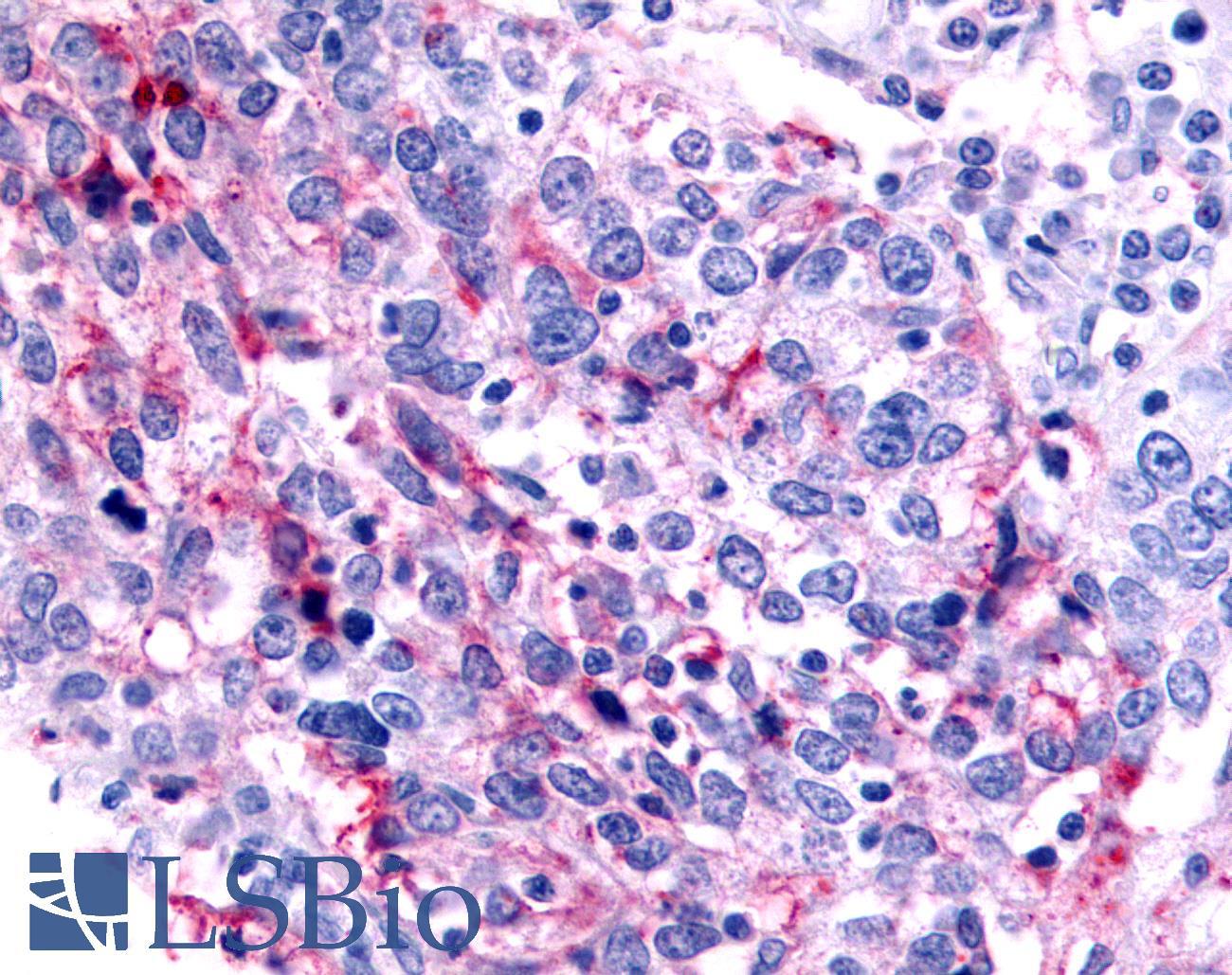
Ovary, carcinoma
Ovary, carcinoma
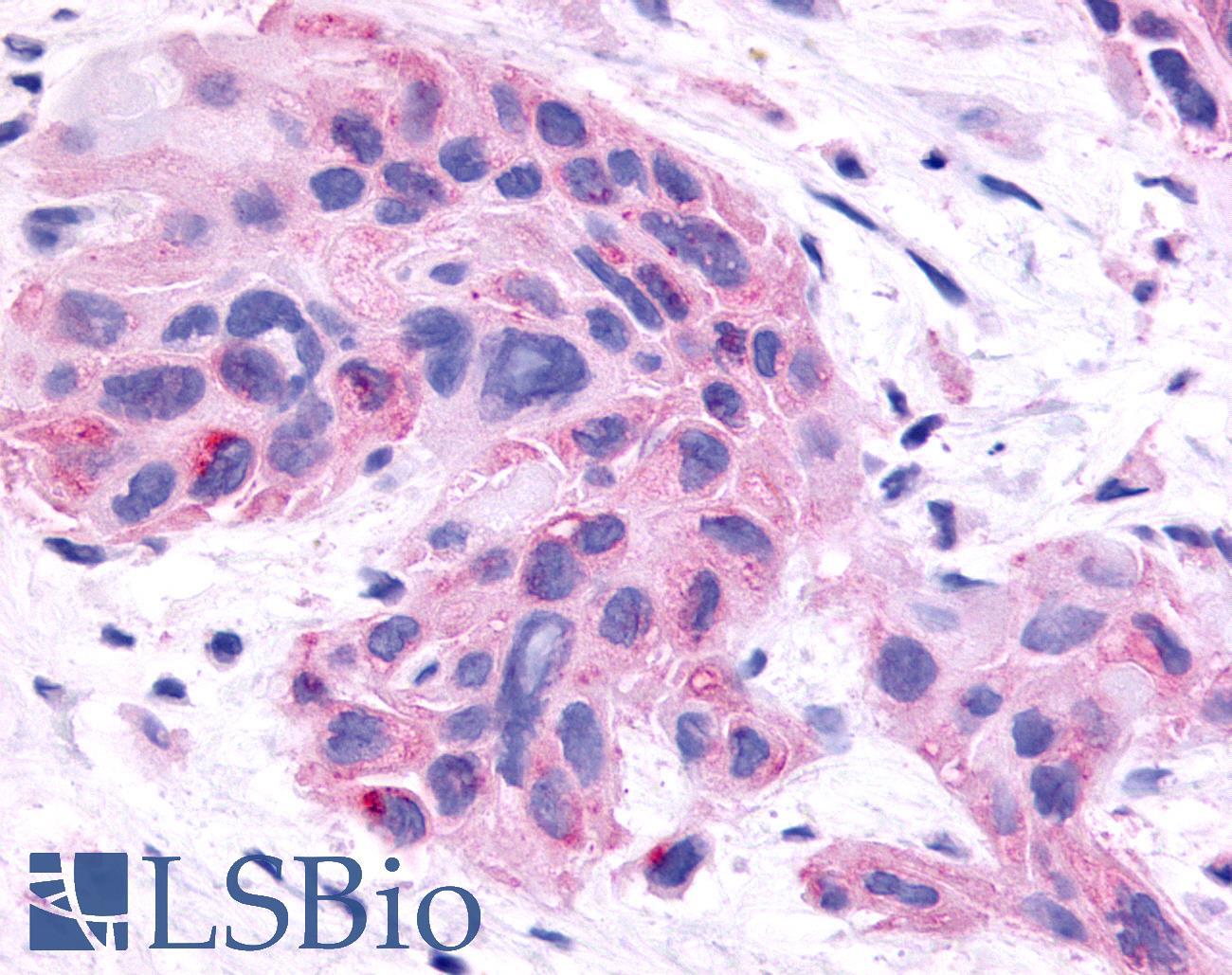
Pancreas, carcinoma
Pancreas, carcinoma

Anti-NR0B2 antibody IHC of human liver, hepatocytes. Immunohistochemistry of formalin-fixed, paraffin-embedded tissue after heat-induced antigen retrieval.
Anti-NR0B2 antibody IHC of human liver, hepatocytes. Immunohistochemistry of formalin-fixed, paraffin-embedded tissue after heat-induced antigen retrieval.
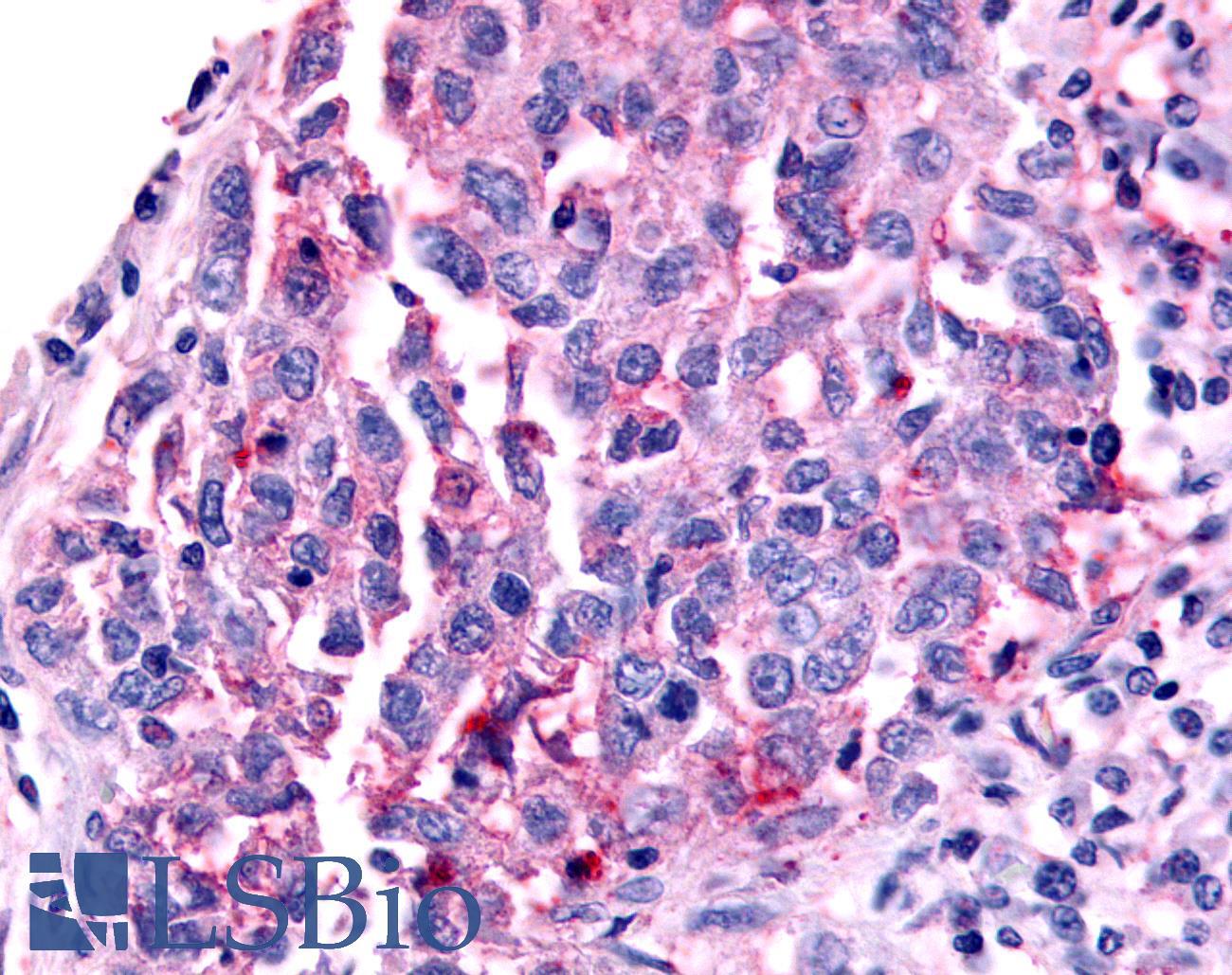
Breast, carcinoma
Breast, carcinoma
See More About...
LSBio Ratings
PathPlus™ NR0B2 Antibody (Ligand-binding Domain) for IHC, ICC, IF/Immunofluorescence LS-A5411 has an LSBio Rating of
Publications (4.2)
Laboratory Validation Score (5)
Learn more about The LSBio Ratings Algorithm
Publications (3)
Nuclear receptor SHP, a death receptor that targets mitochondria, induces apoptosis and inhibits tumor growth. Zhang Y, Soto J, Park K, Viswanath G, Kuwada S, Abel ED, Wang L. Molecular and cellular biology. 2010 30:1341-56. (ICC, WB; Mouse, Human)
Cellular distributions of molecules with altered expression specific to the tumor promotion process from the early stage in a rat two-stage hepatocarcinogenesis model. Takahashi M, Shibutani M, Woo GH, Inoue K, Fujimoto H, Igarashi K, Kanno J, Hirose M, Nishikawa A. Carcinogenesis. 2008 Nov;29:2218-26.
Epigenetic inhibition of nuclear receptor small heterodimer partner is associated with and regulates hepatocellular carcinoma growth. He N, Park K, Zhang Y, Huang J, Lu S, Wang L. Gastroenterology. 2008 Mar;134:793-802.
Customer Reviews (0)
Featured Products
Species:
Human, Mouse, Rat
Applications:
IHC, Immunofluorescence, Western blot
Species:
Human
Applications:
IHC, IHC - Paraffin, Immunofluorescence, Western blot, ELISA
Request SDS/MSDS
To request an SDS/MSDS form for this product, please contact our Technical Support department at:
Technical.Support@LSBio.com
Requested From: United States
Date Requested: 4/18/2024
Date Requested: 4/18/2024


